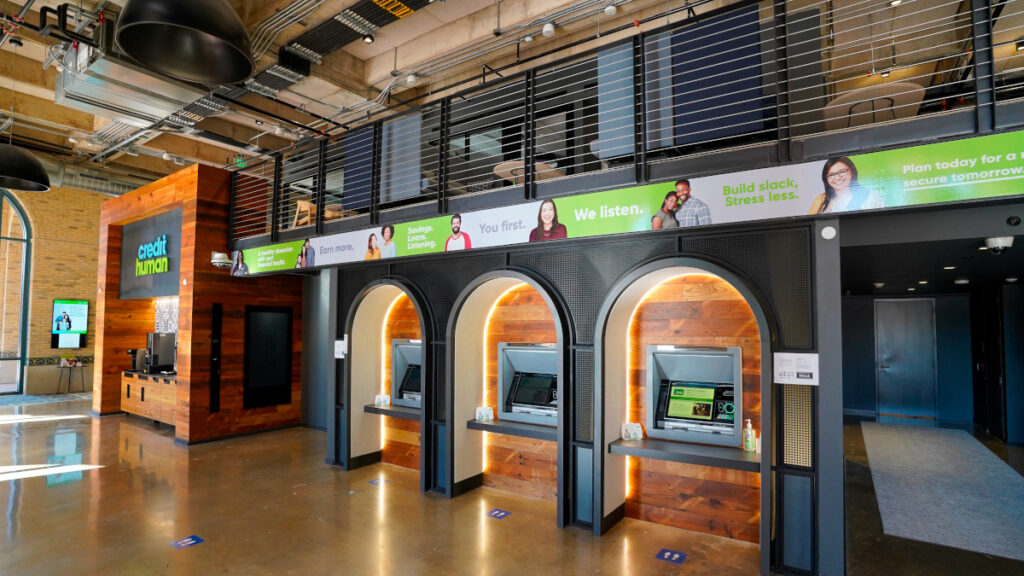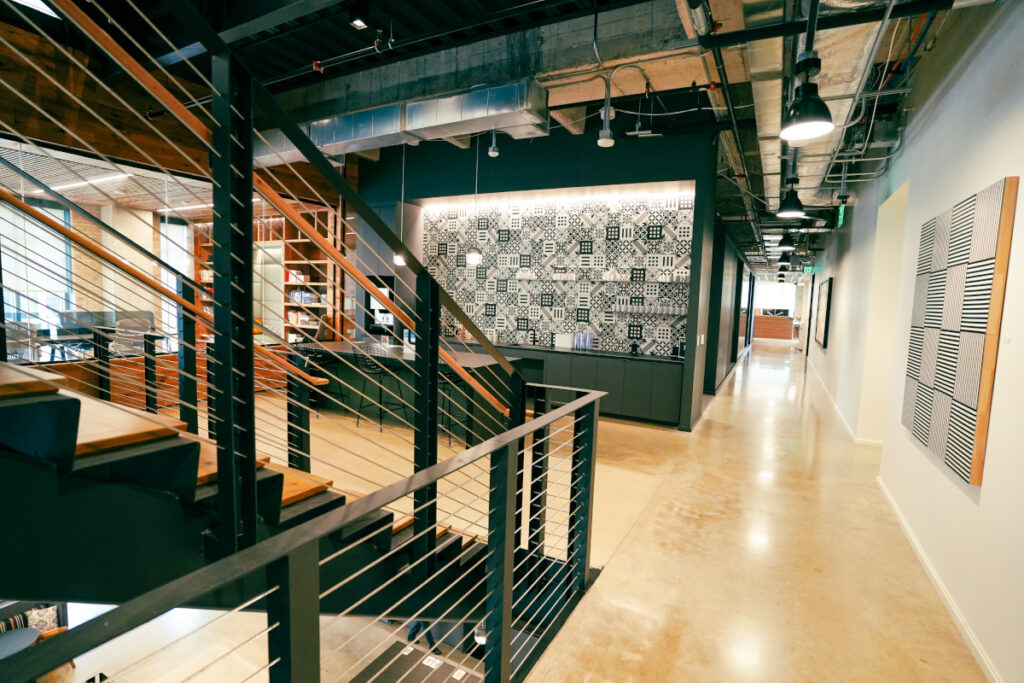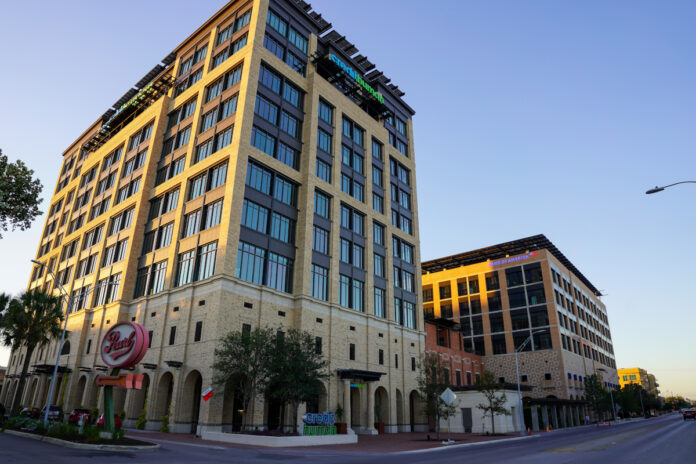The San Antonio-based credit union Credit Human is headquartered near the Pearl District a short walk from downtown, and provides neighbors and visitors alike a destination area where children may take their first spring steps or where former college pals might meet to drink “rose all day.”
Its neighbors, local employers, include a brewery and a bookstore. The office development, including the parking garage, was developed in partnership with Pearl-developer Silver Ventures and serves both employees and the public for events and local attractions. And it’s all based on furthering the idea of creating a sustainable place, like the building itself.
Credit Human’s headquarters, at 1703 Broadway, likely is on a list of the nation’s most green commercial buildings, and certainly is the leader in the manufactured housing industry. It is certified LEED Platinum and has an official Energy Star score of 86.
“Credit Human’s commitment to environmental stewardship includes a goal to reduce green house gas emissions by 50 percent by 2025,” Credit Human Sustainability Programs Manager Beth Keel said. “We’ve already far surpassed that goal and have reduced GHG emissions by 72 percent across the organization. We achieved that by selling inefficient buildings, leasing, and building more efficient units, like the new headquarters.”

Top of the Building
On its roof is a comprehensive hood of solar panels — 2,912 of them — that produce a megawatt of energy each day, about 40 percent of the building’s energy needs.
“It’s the largest solar project on a highrise building in America,” One80 Solar CEO Patrick Attwater said. “During the day we’re going to actually produce more power than the building needs, send some of that power back to the grid, get credits for it, and use those credits later when the building needs it.”

The building has a tight envelope that conserves energy, recognized by the EPA as 40 percent tighter than building codes require. It also uses significantly less potable water than most buildings, 97 percent less than structures of its size and type. This is accomplished by capturing rainwater and condensate, as much as 140,000 gallons, in large tanks situated around the building and below surface on the property.
“Water is precious to San Antonio,” Credit Human CEO Steve Hennigan said. “Traditionally a building like this probably would use about 4.4 million gallons of water per year. So the way to you want to look at that is (by asking) what would the environmental footprint of that 3-acre lot produce as far as water, and how much of that water can we capture, reclaim, and use? And what would the gap left be after that?”
Turns out not much.
Credit Human uses the captured water to flush toilets and send makeup water to the cooling towers outside. The building conserves about 100 million gallons of water annually.
Geothermal wells, 150 of them, pull energy from the earth to heat and cool the building. It has a highly efficient HVAC system that uses variable refrigerant flow, all lights and power outlets power off when not in use, and half of the parking garage’s spots are wired for electric vehicle charging.

Credit Human team members use sit-stand workstations, and to keep movement through the space, the building has a large, central “social staircase” that serves as a meeting point and incentive for getting in those extra steps. Many of the architectural aesthetics for the building are achieved through the use of reclaimed wood and other existing materials from downtown buildings. Throughout the building is the work of local artists, including the building’s tile work and other finishes.
In the cafeteria, employees sort their waste for recycling and composting leftover food. The food is either digested in a biodigester or sent to a local composting company.
“Credit Human’s going to be a place where people can come… to do really great, purpose-driven work and in the process of doing that almost seamlessly and unconsciously have an impact on the planet,” Credit Human Senior Manager Amy Hartman said.
MHInsider is a product of MHVillage, the top marketplace for manufactured and mobile home sales and rental.













